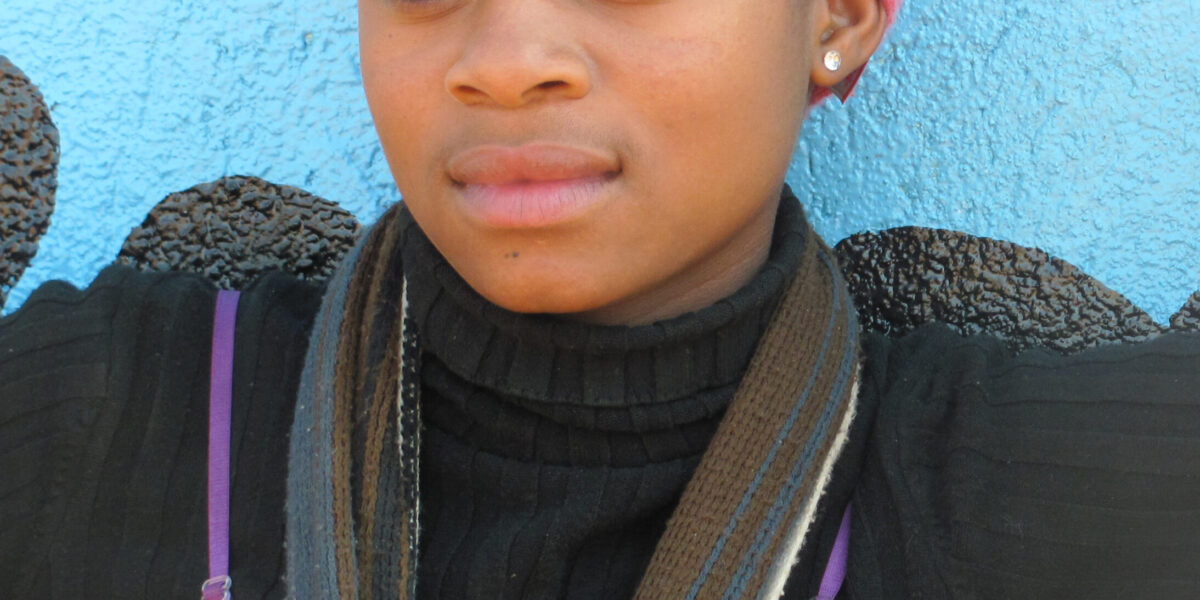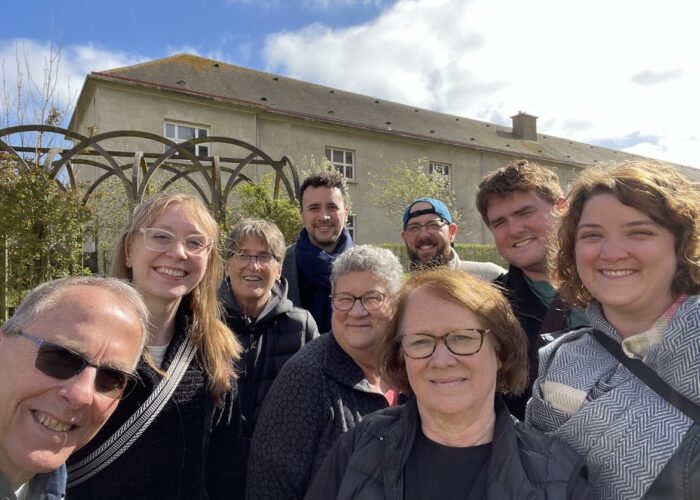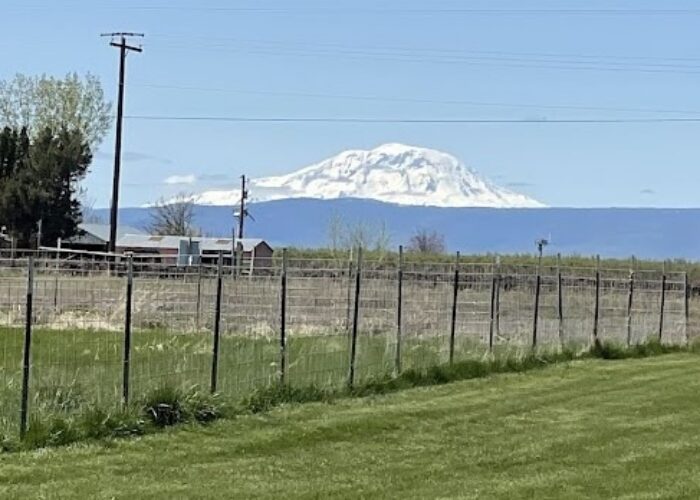FRANCISTOWN, Botswana (Africa Inter-Mennonite Mission/Mennonite Mission Network) – Dikeledi’s name translates as “Tears.” She is very special to me. I first met her two years ago when the Bopaganang Basha Ba Semoya (Youth Center of the Holy Spirit) drama troupe was performing outside a bar in Francistown, Botswana.
The young actors I work with present theater depicting the reality they encounter daily – living with HIV/AIDS, domestic violence, and a lack of financial resources, but they also act out a message of hope and present the possibility of transformation.
I could see Dikeledi’s small group of adolescent girls just hanging out and looking a bit lost. Since I was also feeling uncomfortable at this location, I was drawn toward these girls. Dikeledi welcomed me. Although she looked like a wee girl, she was quite aware of her surroundings and very street savvy. That night we became fast friends.
Dikeledi, about 14 years old when I first met her, lives in the destitute area of Francistown known as Monarch, with an assorted group of relatives. She and her sister started coming to the Mother Theresa Children’s Center just to sit with me. I learned that Dikeledi wanted to quit school because she felt it was unnecessary. Her family was pushing her to find an "uncle" who would give her food and clothing and bring in money for the family as well. However, the price of this temporary fix was that Dikeledi would become a sex slave to the uncle. These older men are usually married. Often, they sleep with many young ladies. In a country where nearly a quarter of all adults live with HIV/AIDS, this adds potential physical suffering to the emotional toll of young girls. We see this overwhelming heartache played out daily at the Mother Theresa center.
Every Saturday for many months, Dikeledi came to the center to help with our feeding program. She is mature, hard-working, and a good leader. But her family continued to put pressure on her.
“Who works without pay?” they argued.
We discussed starting a girls’ group at the center. Dikeledi stepped in to help me in every way. Smart, capable, compassionate. She was great with the younger girls – even those with the behavioral issues.
Last November, I returned to the United States. Dikeledi and some of the other girls in the group were impatient for my return. They thought I might not come back. I sent messages to them, but by the time I returned to Botswana, some had stayed, others had left. Dikeledi had gotten "married" to the uncle. My heart hurt for her. Did I fail her? Did I not give her enough attention, Bible study, or encouragement? Love?
Time passed and I heard very little of her. Once, I saw her in a shop, but the man accompanying her was not pleased to see me. My prayers for Dikeledi continued.
Two weeks ago, I was chasing little ones on the Mother Theresa center playground when I heard a group of girls giggling. As I turned, I saw Dikeledi walking into the center. This was not a hardened child of the streets. This was not a burned out second “wife.” This was our Dikeledi, smiling and skipping toward me with such joy!
I do not know what changed the uncle’s mind that he allowed Dikeledi the freedom to return to the center. But I do know that one of my angels is back, and we welcome her with open arms!
“I needed to come to where I was loved for myself and where I am treated like I count,” Dikeledi said.
Much of the ministry we do here in Botswana involves displaced women and children, people who are on the fringe of society. Each week, I work with more than 200 vulnerable children and also with refugees in a local detention center.
So often, they ask, “Where is God?”
My coworkers and I share the truth, "God is here among us."
Melanie Quinn is supported by congregations of Atlantic Coast, Eastern District, Franconia, Illinois and Indiana-Michigan Mennonite conferences. Bopaganang Basha Ba Semoya began in the mid-1980s with youth from African Initiated Churches in Francistown and Africa Inter-Mennonite Mission workers. Currently, Mennonite Mission Network, AIMM, and Mennonite Church Canada Witness collaborate with churches of Botswana in ministry.
###
For immediate release
Mennonite Mission Network, the mission agency of Mennonite Church USA, leads, mobilizes and equips the church to participate in holistic witness to Jesus Christ in a broken world. Media may contact news@mennonitemission.net.




